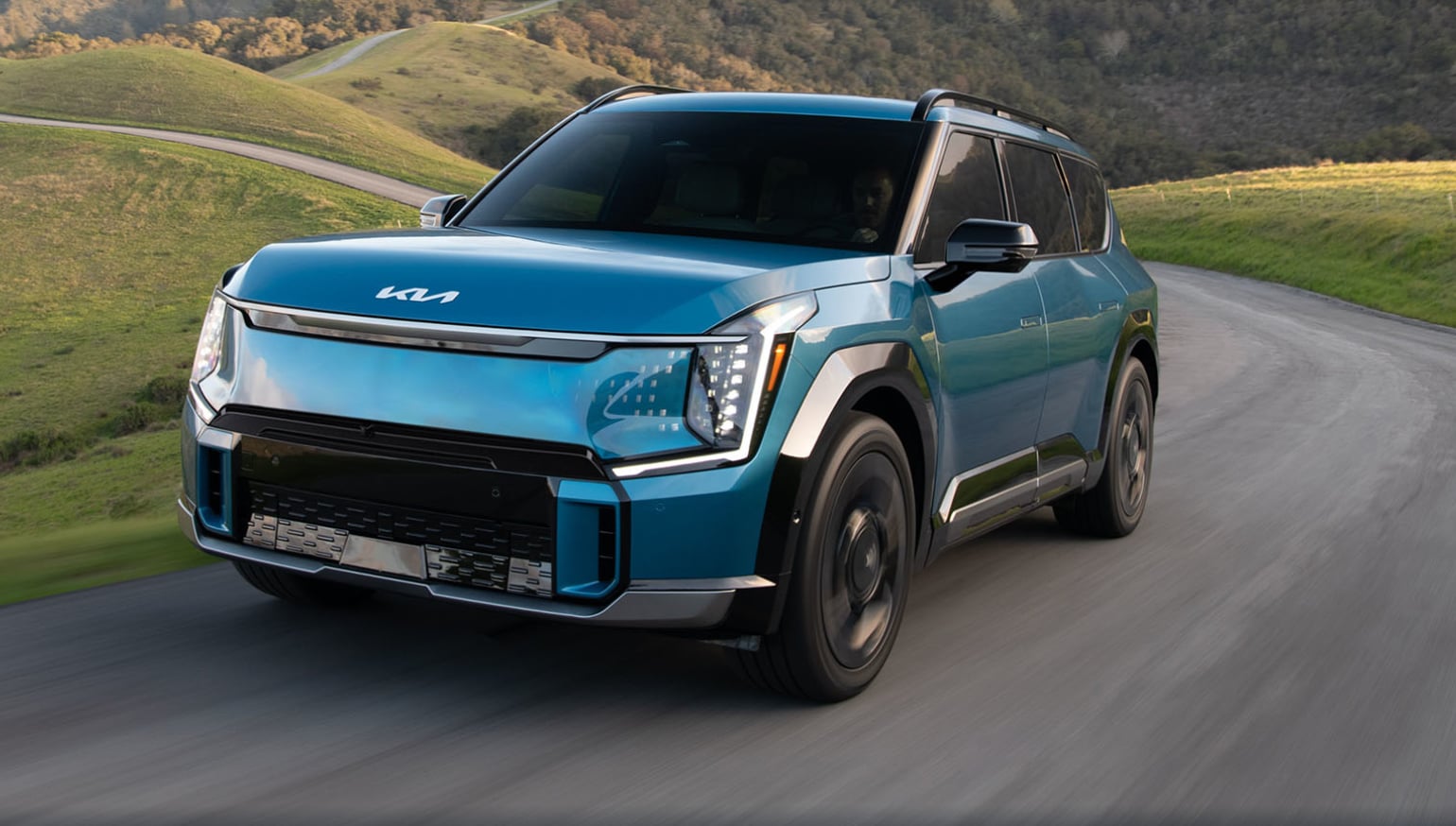
Plug-In (PHEV) and EV FAQ
Benson Kia - Research EV and PHEV
Greenville and Spartanburg area electric vehicle customers often have confusion over the power, performance, and capability of Kia PHEV and EV cars. From plug-in gas and EV combined power to regenerative braking and everything in between, Benson Kia is here to help you research Kia PHEV and EV cars so you feel comfortable buying one for your future travels. From the EV6 to the EV9 and classic Niro, there are plenty of options to choose from in Spartanburg. Read our FAQs below then schedule a test drive at Benson Kia!
FAQs
Q: How do plug-in cars work?
A: Plug-in cars, also known as plug-in hybrid electric vehicles (PHEVs) or fully electric vehicles (EVs), are powered primarily by electricity. They use a rechargeable battery to power an electric motor. In PHEVs, the vehicle can also use a conventional gasoline engine when the electric range is depleted. For EVs, they rely solely on electricity, and the battery is recharged by plugging into an external charging station or wall outlet. The vehicle's onboard systems convert stored electrical energy into power for driving, offering a quiet, smooth, and environmentally friendly driving experience.
Q: How does regenerative braking work?
A: Regenerative braking is a system that helps EVs and hybrids recover energy during braking. Instead of relying solely on traditional friction brakes, the electric motor switches into reverse mode when the driver applies the brakes. This process slows the vehicle down while converting the kinetic energy from the car's motion into electrical energy. The captured energy is then stored in the battery for later use, improving overall efficiency and extending the range of the vehicle. This system also reduces wear on the brake components, leading to lower maintenance costs.
Q: What is the battery life of most EV cars?
A: The battery life of most electric vehicles is typically designed to last between 8 to 15 years, depending on the make and model, as well as driving conditions. Many manufacturers offer warranties for EV batteries that cover at least 8 years or 100,000 miles. While battery capacity may slightly decrease over time, modern EVs are equipped with sophisticated battery management systems to prolong their lifespan. After their useful life in a vehicle, EV batteries can often be repurposed for energy storage or recycled.
Q: Why do people consider EVs?
A: People consider electric vehicles for several reasons, including lower fuel and maintenance costs, environmental benefits, and huge lease incentives or rebates. EVs produce zero tailpipe emissions, making them a popular choice for those looking to reduce their carbon footprint and improve air quality. With fewer moving parts, EVs typically require less maintenance than traditional vehicles, resulting in long-term cost savings. Additionally, incentives such as tax credits, rebates, and access to carpool lanes further increase their appeal. EVs are also praised for their smooth, quiet driving experience and innovative technology.
Q: What type of charging stations are there?
A: There are three main types of charging stations for electric vehicles: Level 1, Level 2, and DC fast charging. Level 1 Charging uses a standard household outlet (120V) and is the slowest option, adding about 3-5 miles of range per hour of charging. Level 2 Charging requires a 240V outlet (similar to a home dryer connection) and adds 10-60 miles of range per hour, depending on the vehicle and charging station. DC Fast Charging is the fastest option, adding 60-100 miles of range in 20-30 minutes. These chargers are usually found at dedicated charging stations along highways and in urban centers.

All About Charging
Q: How long does it take to charge an EV?
A: The time it takes to charge an electric vehicle depends on the size of the battery and the type of charger used. With a standard Level 1 charger, it can take 20-40 hours to fully charge a depleted battery. Level 2 chargers reduce this time to 4-10 hours. DC fast chargers can charge an EV to 80% in as little as 30 minutes to an hour, making them ideal for road trips or quick stops.
Q: How far can an EV go on a single charge?
A: The range of an EV on a single charge depends on the vehicle model and battery size. Most modern EVs offer a range of 150 to 300 miles per charge. Factors such as driving habits, weather conditions, and use of air conditioning or heating can affect the actual range.
Q: Are electric cars more expensive to insure?
A: Insurance rates for electric vehicles can sometimes be higher than for traditional vehicles due to factors like the cost of repairing or replacing specialized components, such as the battery. However, this varies by model and insurance provider. Some insurers offer discounts for EVs due to their lower emissions and overall environmental benefits, so it's worth shopping around to find the best rates.
-
Benson Kia
1100 North Pine Street
Spartanburg, SC 29303
- Sales: (864) 668-1894